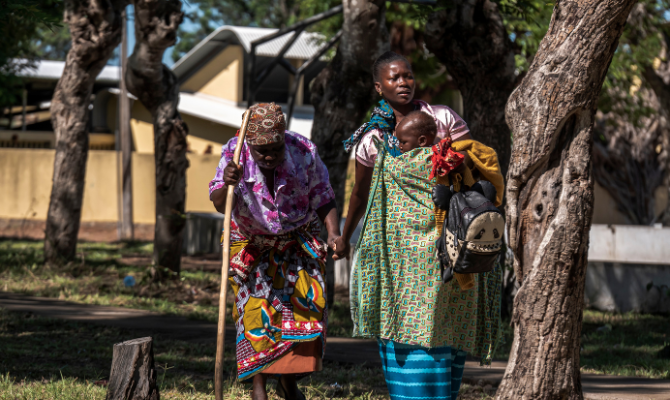Disability is still, far too often, a taboo subject. Yet it is not a disease but a condition and so it must be considered by the most. Sometimes, all it takes is awareness. Awareness to break myths, to fight stigma, to unlock doors.
In recent years, the global conversation on disability has grown louder. In 2018, the United Nations adopted the “Disability Inclusion Strategy” aimed at ensuring the rights of persons with disabilities and eliminating the inequalities and discrimination they face—especially in accessing healthcare.
While these challenges are widely known in Europe, their scale in LICs contexts remains too often unnoticed.
As a med resident in Mozambique, I am beyond thrilled to be part of a team working on a project that perfectly fits in my personal and professional life. Inclu.de 2 – Inclusion for Development: Breaking Barriers in Healthcare is an initiative funded by the Italian Agency for Development Cooperation (AICS) that exemplifies CUAMM’s commitment to improving the lives of the most vulnerable groups.
This project, grounded in a human rights approach, focuses on providing inclusive, quality rehabilitation services for people with disabilities. Across Africa, persons who live with disabilities face daily barriers: inaccessible roads and buildings, lack of transportation, limited access to education and healthcare, and deeply rooted cultural stigma.
A significant milestone was reached in June 2024, when Mozambique approved a law known as Lei 10/2024, aligned with the UN Convention on the Rights of Persons with Disabilities and the African Union Disability Protocol. Despite the adoption of this new law, implementing the legislation is to date the main challenge.
Article 22 of the law guarantees the right to healthcare for persons with disabilities, prioritizing access to medical services and rehabilitation. Yet, many health centers lack proper equipment and trained staff to offer these services. Inclu.de 2 is working to change that.
Since August 2024, CUAMM and local partners have been conducting field assessments across Maputo province to identify gaps and begin targeted interventions.
“In the past months, I had the privilege of joining a donor field visit to two healthcare centers—Moamba and Sabie—where some of these barriers were painfully evident. – said Marise Sabato. –
The road to Moamba was barely passable, riddled with potholes, completely unsuitable for wheelchair users. Not to mention the impossibility for people with mobility impairments to access public transport”.
Every month, some 400 patients seek rehabilitation services in this facilities, but equipment is outdated, and structural barriers—like narrow doorways—limit access. Sabie, on the other hand, lacks a rehabilitation space entirely, forcing patients to travel to Moamba.
“Despite the challenges, I was encouraged by the strong collaboration with local stakeholders who recognize the urgency of inclusion and the opportunity this new law presents” said Marise Sabato.
Difficulties in accessing care jeopardize the impact of rehabilitation services, as counted by Salita who has been attending physiotherapy in Moamba healthcentre for more than a year.
“When it rains, there is no transport which means that in no way can a person living with disability like me reach the healthcentre for the therapy session. In addition, equipment is scarse. I keep going despite the difficulties but I need a bike for my rehab, and there isn’t one.”
Still, she praised the dedication of the health staff, noting how they reach out when she misses a session.
“They do their best. I’ve seen people come here unable to walk and now they can. They even call to check on me if I don’t show up.”
These are the stories that drive our work.
CUAMM has been present in Mozambique since 1978, serving “the last mile,” where health services are hardest to reach. Through Inclu.de 2, CUAMM is not just delivering services—but building capacity. Training health workers and community activists in how to communicate and care for people with disabilities is a key part of our strategy.
Whether it’s teaching health workers how to interact respectfully with patients who are deaf—using sign language apps—or equipping community leaders to combat stigma and raise awareness, our aim is to dismantle not just physical but social and cultural barriers.
And this is where inclusion begins: with understanding.
“For me, this is a personal mission. I live with a disability myself, which makes me even more attuned to the daily challenges faced by people here. This project has allowed me to grow not only as a public health professional, but as a person.
Working on Inclu.de 2 from its early stages, I’ve gained invaluable experience in project planning, leadership, advocacy, and local partnership building. I’ve learned that effective collaboration is key to sustainability—and that while implementing a project is never easy, especially in resource-limited settings, every small win counts.
With good planning and a committed team, deadlines become milestones, and challenges turn into achievements.
Mozambique is teaching me so much—about resilience, about equity, and about how change happens. Slowly, and together”.





